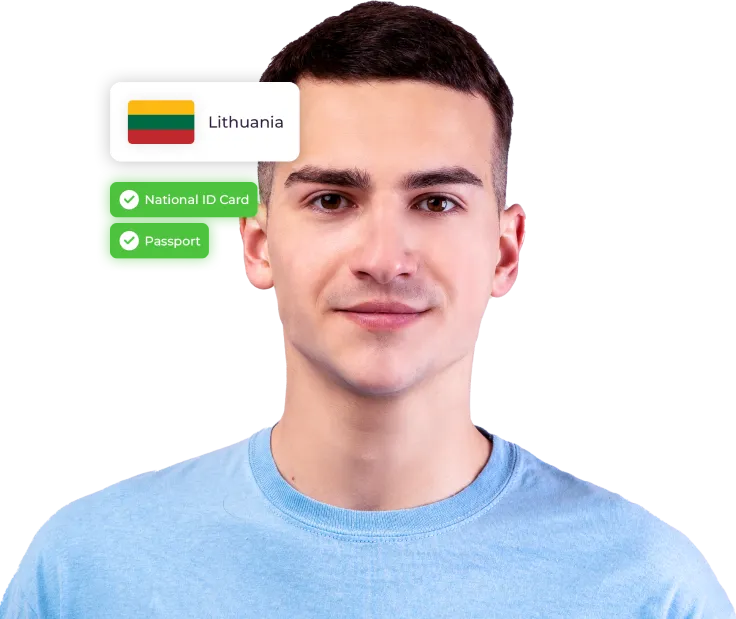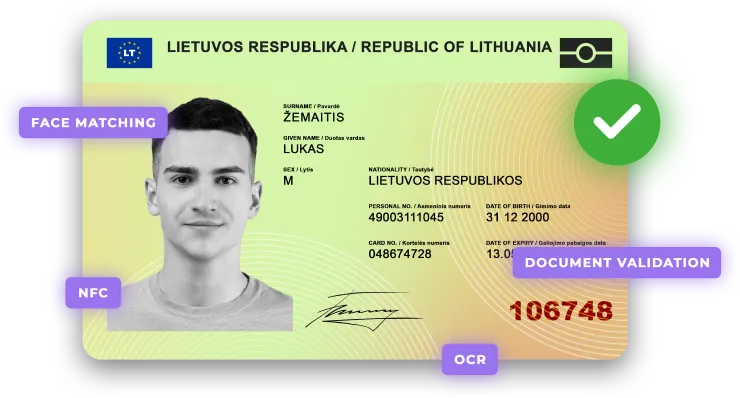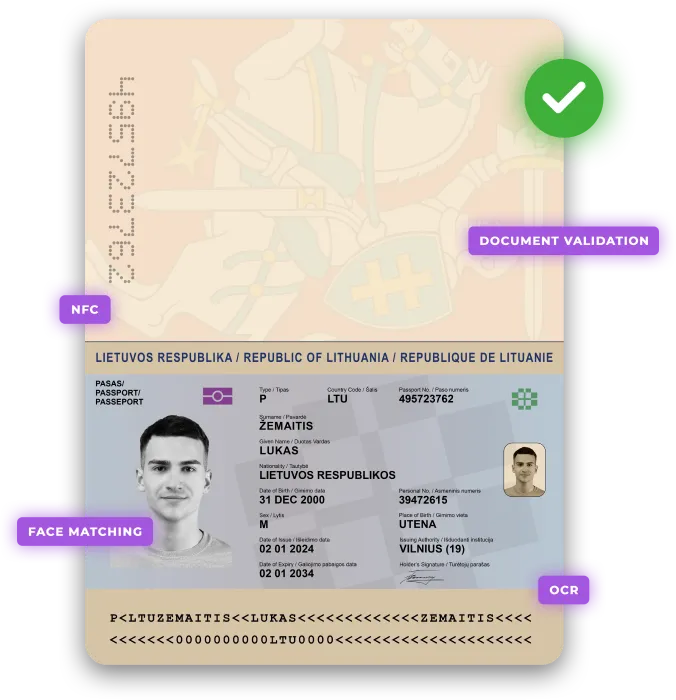COVERAGE
Navigate Lithuania’s AML Regulations with Ease
Delivering reliable compliance solutions for Lithuania, supporting local laws, risk management, and operational integrity across financial and non-financial sectors.

Trusted by 1,500+ clients globally









Who are the regulators in Lithuania?
Bank of Lithuania (BoL)
The Bank of Lithuania is the primary AML/CTF regulator, issuing guidance, supervising financial institutions, enforcing regulations, and applying a risk-based framework with simplified due diligence for low-risk activities.
Ministry of Finance of the Republic of Lithuania
The Ministry leads Lithuania’s AML/CFT efforts by developing legislation, coordinating sectors, managing risks, and promoting international cooperation, including advocating to host the European AML Authority.
Centre of Excellence in Anti-Money Laundering (AML Center)
Lithuania’s AML Center strengthens the national AML/CTF framework through collaboration, information exchange, technology, and policy support to prevent financial crime.
Who is regulated in Lithuania?
Financial Institutions (FIs)
Who are classified as FIs?
Banks
Credit and Payment Institutions
EMIs
Investment Firms
Insurers
Virtual Asset Service Providers (VASPs)
Designated Non-financial Businesses and Professions (DNFBPs)
Who are classified as DNFBPs?
Real Estate Brokers
Auditors
Accountants
Lawyers
Notaries
Expectations for regulated firms
Apply a risk-based approach to all customers and products.
Conduct Customer Due Diligence (CDD): identity verification, beneficial-owner checks, purpose and nature of the business relationship and Apply Enhanced Due Diligence for high-risk customers (e.g., PEPs, high-risk countries).
Maintain ongoing transaction monitoring and submit Suspicious Transaction Reports (STRs) to the FCIS. Keep required records for the statutory retention period.

AML/KYC Checklist for Lithuania
- Verify customer identity and legal status.
- Identify and document beneficial ownership.
- Assess ML/TF risks at onboarding and throughout the relationship.
- Screen for PEPs and sanctions exposure.
- Capture information on source of funds for higher-risk cases.
Supervision & Enforcement
The Bank of Lithuania conducts regular inspections, on-site reviews, and can impose administrative measures including fines and licence restrictions.
Lithuania has recently issued significant fines to EMIs, PSPs, and fintech firms, reinforcing its strict compliance stance.

Supported ID documents from Lithuania
National ID
Idenfo can verify the Lithuanian ID card, issued by the Lithuanian Migration Department, ensuring precise data matching and full compliance with Lithuanian regulatory requirements and identity verification standards.
Document Verification
- Evaluates document quality by checking for glare or blur.
- Identifies any signs of tampering or forgery within the document.
- Confirms the authenticity of hologram prints.
- Extracts key data using optical character recognition (OCR).
NFC Scanning
- Reads data from the identity card's NFC chip.
- Verifies the NFC chip data for integrity and authenticity.


Lithuanian Passport
Idenfo verifies Lithuanian passports issued by the Migration Department, confirming the holder’s name, date of birth, and contact details as part of Enhanced Due Diligence for KYC in Lithuania.
Document Verification
- Evaluates document quality by detecting glare or blur.
- Identifies potential tampering or forgery.
- Verifies the document’s format for accuracy.
- Cross-checks data against the MRZ code and hologram.
NFC Scanning
- Reads data from the passport's NFC chip.
- Verifies the NFC chip data for integrity and authenticity.
How it works

Document Capture
Scan and extract key identity details from official documents.

Liveness Check
Ensure the person is real and matches their verified ID photo.

Data Verification
Cross-check personal details against trusted government sources.

Risk Screening
Assess AML and sanctions risks before onboarding customers.

User Authentication
Simplify returning logins with secure biometric authentication.

